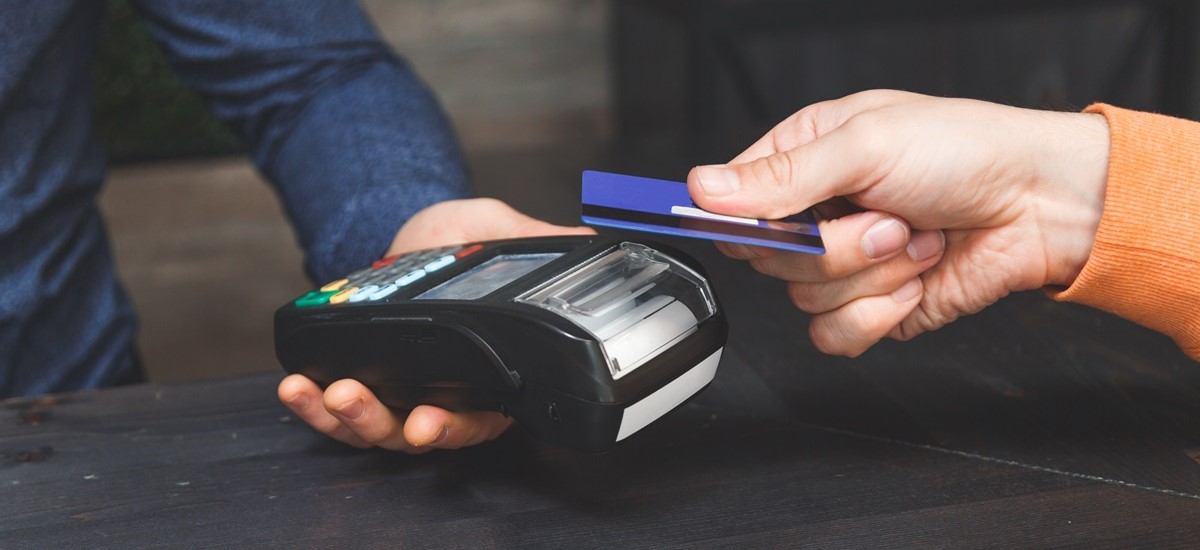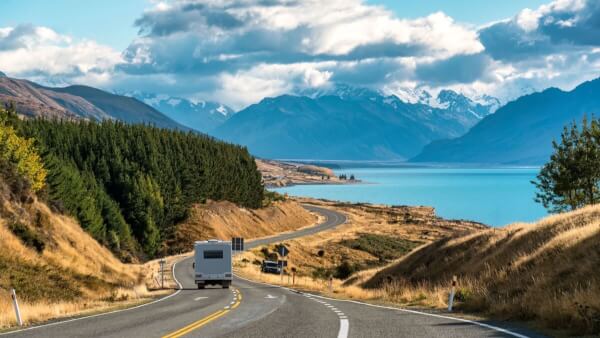Taking cash in or out of New Zealand: What are the rules?
Need to know how much cash can you take to NZ? Read our guide for info on the rules for taking cash in and out of New Zealand.

Getting ready for a trip to New Zealand? While packing and planning your travel budget, it’s a good idea to learn how the locals pay. Some countries have fully embraced digital payments, while others still rely on cash.
Credit cards are the most popular payment method in New Zealand followed by debit cards. Cash is used much less, just 6% of transactions are cash1. However, how much cash you'll need during your trip depends on your destination and where you plan to spend it. We'll cover this in more detail to help answer the question - which is more convenient, cash or card in New Zealand?
We’ll also show you a cost-effective way to handle your finances in New Zealand with Wise. For all international purchases, online or in person, you can rely on the Wise card. You can even withdraw cash like a local for low fees* and at the great mid-market exchange rate.
New Zealand is not a cash-centric country and is expected to become even more digital in the future. Most New Zealanders use credit and debit cards for payments, with e-wallets ranking third. Cash accounts for only about 6% of transactions.1
If local and global trends continue as predicted, cash usage will decline even further in the coming years. However, cards are expected to remain just as popular.1
Tipping is not expected in New Zealand, as service workers receive relatively high wages and do not rely on tips. However, it is not considered offensive, so feel free to leave some extra cash if you're happy with the service.2
If you’d like to tip in a restaurant or café, 10% is more than enough. Most cafés also have tip jars where you can leave some change to show your appreciation. For taxis, you can simply tell the driver to keep the change instead of calculating a tip percentage.2
The only place where tipping is more common is on tours. Although not expected, tourists often leave anywhere from 5 NZD to whatever amount they feel is appropriate.2

We’ve listed some common situations where you’ll be paying for things in New Zealand. Here’s whether you’ll be able to pay by card, in cash or both:
| Paying for… | Card | Cash |
|---|---|---|
| 🚕 Taxis3 | Sometimes | Yes |
| 🖼️ Museums4 | Usually, yes | Sometimes |
| 🩳 Markets5 | Sometimes | Yes |
| 🍽️ Restaurants6 | Usually, yes | Usually, yes |
| 🛍️ Retail stores6 | Usually, yes | Usually, yes |
| 🚌 Public transport7 | Sometimes | Sometimes |
Want to work out exactly how much things cost? Explore our live NZ dollar exchange rate currency converter.
Around 1,800 ATMs in New Zealand are bank-owned, while many others are operated by independent networks. Some of the biggest and most popular banks, including Westpac, ANZ and ASB, have ATMs located on busy streets, in shopping malls and in some office buildings. ATMs can be hard to find in rural towns and small airports, so it's a good idea to withdraw cash in advance before visiting these areas.8
While withdrawal limits vary from 200 to 2,000 NZD, most banks usually let you withdraw 2,000 NZD in one transaction. The daily limit is typically 3,000 NZD and ATM fees can go up to 7 NZD. However, there are ATMs in New Zealand that are free to use.8
Yes, you’ll be able to use your UK-issued card in New Zealand, both for purchases and withdrawals.9
Yes, as long as you go to a place that accepts cards, you can use your UK credit card in New Zealand. Just avoid using it for ATM withdrawals, as this can lead to higher fees and interest.

Although cash use is declining in New Zealand, it can still be useful in certain situations. For example, it is essential for tipping, shopping at farmers' markets and visiting rural areas.
Using cash can also help you stick to your budget. When you can physically see how much money you have left, you’re less likely to overspend.

Credit and debit cards are the most common payment methods in New Zealand. You'll likely be able to use your UK card in most stores and restaurants, making it a more practical option for travel. Paying by card also saves you the hassle of exchanging currency or finding an ATM.
Beyond convenience, cards are much safer than carrying large amounts of cash. If you lose cash or it gets stolen, there’s little you can do. With a card, you can quickly freeze your account and report unauthorised transactions.
Contactless payments are widely used in New Zealand, especially since cards are the most common payment method. However, a PayWave surcharge applies to contactless transactions, usually around 2.5%.10
The limit for contactless payments in New Zealand is 200 NZD, after which you’ll need to enter your PIN.11
Your Wise card can also be used for contactless payments in New Zealand. If you don’t want to carry multiple cards with you, you can get the Wise virtual card with the same features.
Besides the traditional cards and cash, other payment methods are available in New Zealand.
New Zealanders use popular e-wallets like Apple Pay, Google Pay and PayPal. They’re widely accepted at points of sale and their popularity is expected to grow. Besides this, Kiwis also use and accept Alipay, the famous Chinese mobile payment platform. However, this is mainly catering to Chinese tourists.6
If you plan on using any of these wallet apps during your trip, make sure you update them before you leave to avoid any issues.
For additional security, you could add your Wise virtual card to your wallet. It has all the benefits of a regular Wise card, but it exists in your phone only. You can freeze your Wise virtual card after every transaction, too.
There are many BNPL options in New Zealand, offering a convenient way to manage payments. Afterpay, Clearpay and Zip are among the most popular.6
Both Afterpay and Clearpay let users split purchases into a few interest-free instalments, usually with the first payment due at the time of purchase. Both require a credit check.6
Zip works similarly but also offers Zip Pay, a digital wallet feature that allows users to shop at partner stores.3

If you have to choose between cash or card in New Zealand, cards are the better option. They are the preferred payment method among New Zealanders, so you’ll be able to use them almost everywhere.
However, it’s a good idea to carry some New Zealand dollars too in case you want to leave a tip or buy something from a local street vendor.
If you're heading to New Zealand soon, you'll likely get by with just your cards. However, cash might be needed for small purchases or local shops in rural areas.
And if you want to spend like a local in New Zealand and 150+ countries, without worrying about exchange rates and hidden fees, the Wise card might be just the thing you’re looking for.
The Wise card can be used for all international payments, including accommodation costs and daily expenses. It automatically converts the currency at the mid-market exchange rate with only a small, transparent currency conversion fee*.
Learn more about the Wise card 💳
You can also use it to easily withdraw cash from the ATMs in New Zealand. Each month, you can make 2 withdrawals of up to 200 GBP for free. After that, there is a charge of 0.5 GBP per withdrawal. There’s also a 1.75% fee on any amount you withdraw above 200 GBP.
To summarise, here are some of the most frequent questions about using cash or cards in New Zealand.
Yes, you should be able to use your UK debit card wherever you see the Mastercard or Visa symbol.
It’s best to stick to official bank ATMs, since most of them don’t charge a fee for withdrawing cash.12
Many ATMs don’t charge any fees, while others may charge up to 7 NZD.
It’s up to you, but you generally don’t need to get New Zealand dollars before arriving.
New Zealand is fairly cashless, with only around 6% of transactions made in cash on average.
The official currency of New Zealand is the New Zealand dollar, and it's generally the only currency accepted.
You can mostly get by without cash in Auckland as most places accept cards and digital wallets.
Sources used:
1. Statista - POS payment methods in New Zealand
2. Wise Move - tipping in New Zealand
3. Welcome Pickups - Auckland taxi
4. Auckland Museum - museums info
5. Christchurch Farmers Market - markets in NZ
6. Shuttle Global - the most popular payment methods in New Zealand
7. Auckland Transport - paying for public transport in Auckland
8. ATM Fee Saver - ATMs in New Zealand
9. Finder - travel money in New Zealand
10. RNZ - PayWave surcharges
11. Westpac - contactless limit
12. RNZ - ATM withdrawal fees
Sources last checked on date: 07-Feb-2025
*Please see terms of use and product availability for your region or visit Wise fees and pricing for the most up to date pricing and fee information.
This publication is provided for general information purposes and does not constitute legal, tax or other professional advice from Wise Payments Limited or its subsidiaries and its affiliates, and it is not intended as a substitute for obtaining advice from a financial advisor or any other professional.
We make no representations, warranties or guarantees, whether expressed or implied, that the content in the publication is accurate, complete or up to date.

Need to know how much cash can you take to NZ? Read our guide for info on the rules for taking cash in and out of New Zealand.

Read our essential guide on travel to New Zealand from the UK, featuring must-know travel advice on money, safety, visas, transport and more.

Check out our in-depth guide on everything you need to know about buying a prepaid New Zealand SIM card, including different providers, pricing, and features.

Whether you’re heading to New Zealand on a once-in-a-lifetime holiday or to set up your new home, you’ll need to find out how money works in the country....

While credit and debit card payments are incredibly popular in New Zealand (almost more so than they're in Europe), it’s still a good idea to have some cash...